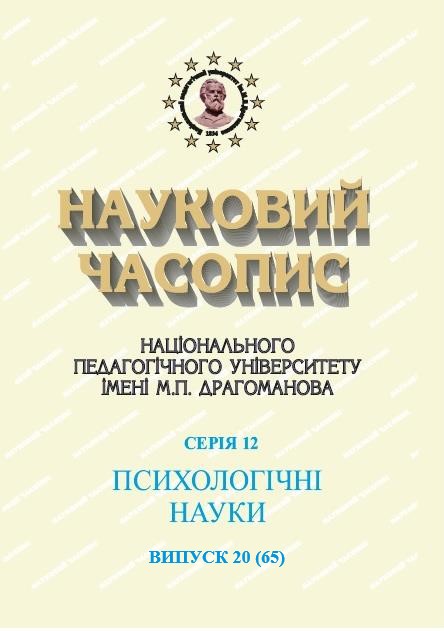ORGANIZATIONAL CULTURE AS A FACTOR OF PROFESSIONAL MOTIVATION OF MILITARY PERSONNEL
DOI:
https://doi.org/10.31392/NPU-nc.series12.2022.20(65).02Keywords:
professional motivation; organizational culture; servicemen; motivation of a serviceman; military organization; combat activity.Abstract
The article considers the psychological features of the formation and functioning the organizational culture of a military structure, its influence on the motivation of military personnel combat activities. Applying theoretical methods of analysis, synthesis, comparison and systematization of scientific sources to determine the essence of the main concepts of research, generalization of theoretical approaches to the problem of motivation of military personnel, based on the analysis of modern theories of business cultures, their main characteristics were singled out and the model of motivation formation to achieve organizational goals was substantiated. The system of factors of functioning the organizational culture of military organizations, at the level of the functional environment, both organizational and personal, which decisively affect the level of professional motivation of military personnel, is determined. It was established that the behavioral determinants in the organization that define the type of organizational culture and, as a result, the direction and level of behavioral activity of the staff are the leader’s personality and their managerial style; acquired actual collective experience, which is enshrined in customs, traditions, rituals, doctrines, organizational structures; positive psychological climate, approval and support from colleagues, authorities; the general context, the place of the organization in the global dimension, involvement in solving significant social problems. The study of organizational culture as a factor in the professional motivation of military personnel made it possible to establish the organizational influence on the formation and activity of military personnel’s behavior as a determining factor. The defined characteristics of the business culture inherent in military organizations indicate a fairly high potential for the formation of an appropriate level of professional motivation of military personnel. At the same time, it has a wide scope for improvement through the formation (borrowing) of best management and professional practices.
References
- Dmytrenko, M. (2014). Korporatyvna kultura ta yii funktsionalnyi potentsial [Corporate culture and its functional potential]. Scientific Bulletin, 88, 244‒249 [in Ukrainian].
- Osodlo, V., Kataev, Ye., & Pozyvaylova, O. (2015). Psykholohiia orhanizatsii [Organizational psychology]. Kyiv : NUOU im. Ivana Cherniakhovskoho [in Ukrainian].
- Armstrong, M. (2006). Strategic human resource management: a guide to action (3-nd ed). 14‒18. London and Philadelphia : Kogan Page.
- Bannikova, K., & Mykhaylyova, K. (2017). Organizational Memory as a Mechanism of Formation and Development of Organizational Culture. IOSR Journal Of Humanities and Social Science (IOSR-JHSS), 22(4), 9–15.
- Brown, A. (1995, 1998). Organisational Culture (2-nd ed). Pitman Publishing.
- Deal, T., & Kennedy, A. (1982). Corporate Cultures: The Rites and Rituals of Corporate Life. Reading, MA : Addison-Wesley Publishing Co.
- Osodlo, V., Rybchuk, O., & Krykun, V. (2021). Organizational Culture as a Basis for Efficient Development of Organization. Management and Business Research Quarterly, 17, 18‒30.https://doi.org/10.32038/mbrq.2021.17.02.
- Schein, E. (1999). The corporate culture survival guide. San Francisco, CA: Jossey-Bass.
- Schein, E. (2004). Organizational Culture and Leadership. Printed in the United States of America, 3, 35‒43.

